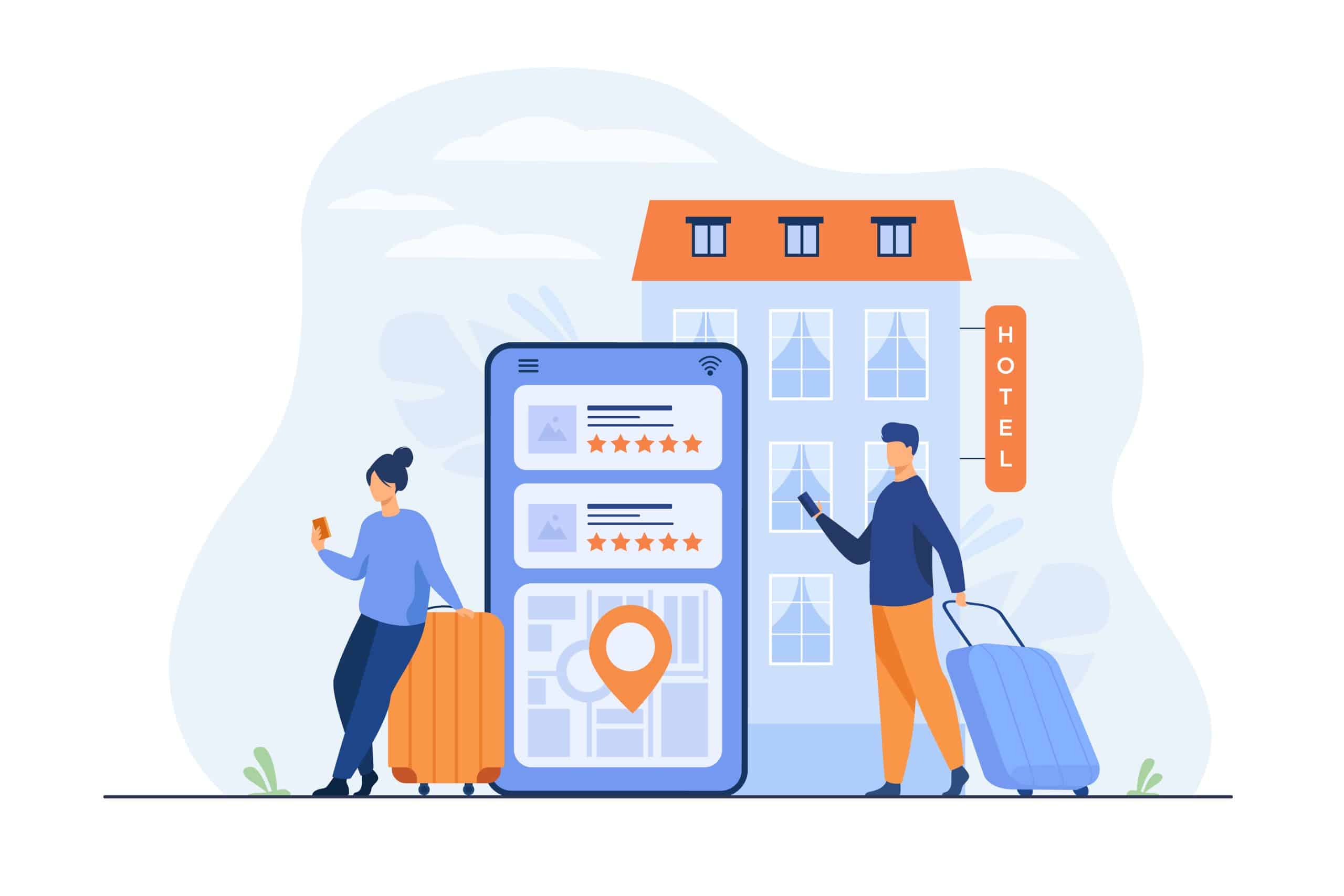Booking.com is a website that lets you book accommodation around the world. It’s one of the biggest sites in its niche, so it’s no surprise that it gets millions of visitors daily.
Besides being useful for finding accommodation, Booking.com has a lot of information that can be used for marketing purposes or just to get an overview of what’s happening in the world of travel booking.
If you’re looking to scrape Booking.com, you can get a large amount of data about their database and use it for your purposes.
But how exactly should you be scraping Booking.com? Which tools should you use? That’s why this article was written – to answer these questions and more!
Why scrape Booking.com?
Booking.com is a great way to find a place to stay, but it’s also great to learn about the travel industry. The website has information about 28 million places to stay all over the world. It has a wealth of information about where people go on vacation and how much they pay to stay there.
You can use this information to figure out where to go and how much your trip will cost. For example, let’s say you want to stay near the Eiffel Tower during a weekend trip to Paris. In that case, you can type “Paris” into Booking.com’s search bar to see what properties are available near the landmark. You’ll also be able to see how much they cost. This will help you decide if it’s worth splurging on that three-bedroom apartment instead of just getting two single beds at a hostel down the street from Notre Dame cathedral.
Also, if you run a hotel, there are many reasons why you should scrape Booking.com. With the scraped data, you can compare prices, improve customer service, make better packages, and more.
What data can you get when scraping Booking.com?
When you scrape Booking.com, you can get a wealth of accommodation information. The data includes:
- The accommodation’s name and address
- The phone number of the accommodation and its website
- Room types available at different price points
- The star rating of the accommodation
- Customer reviews of the accommodation
- Promotional deals offered by booking sites and accommodations themselves
- Seasonal rates at different times of the year
- Sale information on rooms
How to scrape Booking.com?
The following are the steps in scraping Booking.com:
- Filter out accommodations by location.
- Go through the listings on the results page one by one.
- Scrape data from each listing.
- Go to the next page in the results.
No matter which tool or service you use, the steps above would remain more or less the same, even if you do it manually. But if you want to scrape data from all cities in a certain country, it would take months or even a year to get it done by hand, and you would probably make a lot of mistakes.
With that, you may want to go for an automated web scraper. If you have coding skills, consider using Python, as it is the most common and versatile language you can use in web scraping. On the other hand, if you have no idea how to use codes or just want to scrape with less hassle, you should go with no-code web scrapers. These scrapers are the easiest way to extract data from Booking.com or any site.
Which Web Scraper Can You Use to Scrape Booking.com?
A few options are available if you’re looking for a web scraper to scrape Booking.com. Here are some of the most recommended web scrapers you can use:
Octoparse
Octoparse is a powerful tool for scraping Booking.com or any website. It has many users and a development team that is always working on it. It is simple to use and has an interface that is easy to understand. You can start using Octoparse right away by signing up for either the free trial or the paid version.
Octoparse works on Windows, Chrome OS, macOS, and Linux. The software also comes with add-ons that let it get information from other websites, such as Amazon and eBay.
The biggest problem with Octoparse is that it doesn’t have many advanced features like geo-targeting and image recognition. But if you want to scrape data from Booking.com in a simpler way, this could be the answer.
Scrapestorm
It’s easy to see why Scrapestorm is one of the most popular online scraping tools. It’s powerful enough for even the most complicated projects but easy enough to use that you can start right away. You can easily make workflows and use them in multiple projects. This saves you time and effort when working with different sites or data types.
Scrapestorm offers a starter plan which is free, but it has some limits. Only ten scraping tasks and one local run are allowed. If you want more features, you can sign up for one of their paid plans, which starts at $49.99 a month.
Webscraper.io
You can use webscraper.io to scrape data from Booking.com or any website and store it in a database on your computer or in the cloud. You can also use it to extract information from websites with dynamic content, such as online shopping sites or websites requiring registration before using them.
This tool is a free Chrome extension that you can set up and start scraping with just a few clicks. Once you’ve set up how to navigate and scrape the site, you can watch the scraping happen in another window. You can export the data to a CSV, XLSX, or JSON file when it’s done scraping. If you need to scrape a lot of data, you can look at their different packages.
Why are proxies a must when scraping Booking.com?
Regardless of what scraper you will use, you will need a proxy to scrape Booking.com. This is because the site does not support scraping data from its platform. In fact, it has built an anti-spam system that blocks requests from IPs that try to access the platform automatically.
Web scraping bots send a lot of requests to the website they want to scrape. This could make the website’s admin think they are being attacked, so they might block the IP address where the requests are coming from. Getting the information you need won’t be possible if this happens to you.
You can prevent this from occurring with a proxy. A proxy makes it harder for a website to find your scraping bot and block your IP address. It gives you different IP addresses that your scrapers can use to leave different tracks. This makes it hard for the site to figure out that a single device made the requests.
Using a proxy also helps make sure that your IP address stays private. Your IP address never leaves its servers. Instead of sending requests directly to Booking.com, the proxy sends them for you, so no one else can see where they came from.
Conclusion
Scraping Booking.com can be a great way to get data on different accommodations. You can get a lot of information about their prices, which cities they’re in, and what kind of reviews they have.
There are many different web scrapers that you can use to scrape Booking.com. The choice between them depends on your budget and the data you want to scrape from the website.
When you scrape Booking.com, make sure you use proxies to protect your IP address, and avoid your bots from getting blocked.



